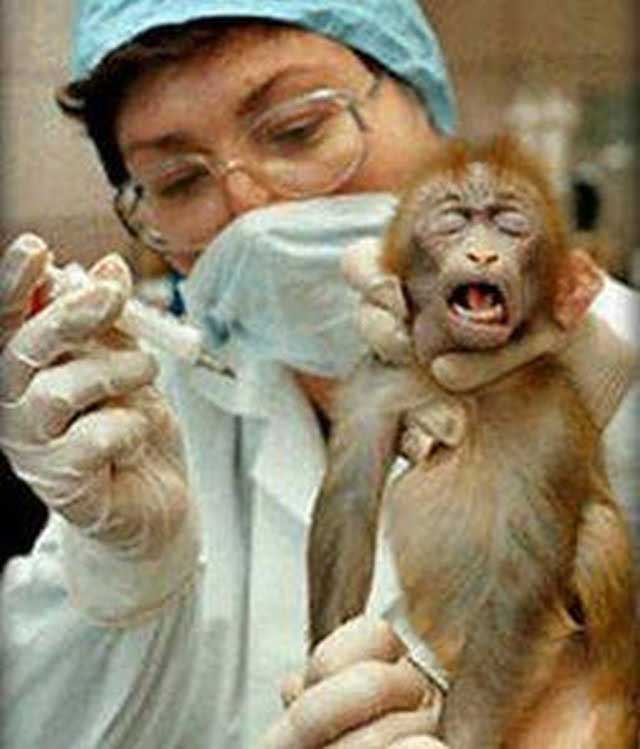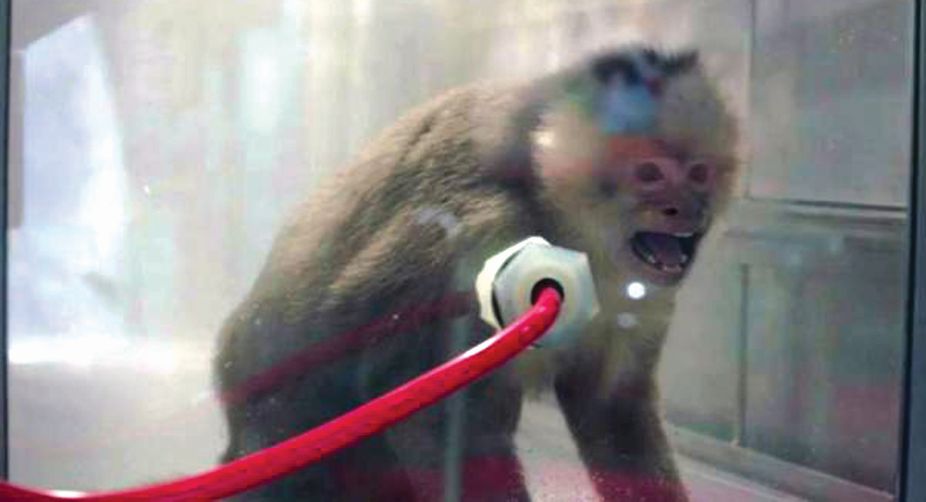Animal Experimentation
By: Soha Aftab
Medicine has no doubt been the key to saving people’s lives throughout history. Diseases like smallpox which was estimated to have killed up to 300 million people in the 20th century and around 500 million people in the last 100 years of its existence, as well as six monarchs. As recently as 1967, 15 million cases occurred a year (https://www.nationalgeographic.com/science/health-and-human-body/human-diseases/smallpox/). Such a deadly disease has now been completely eradicated with the help of science. All of the advancements and success in the medical industry has largely been due to animal testing. While most consider science a blessing, this might not be believed by all.
Movies vs Reality
While science has its benefits many movies like Hollow Man (2000), Jurassic World (2015) and The Rise of the Planet of the Apes (2011) have already given us an idea of why animal experiments for research are bad bad idea.We saw in The Rise of the Planet of the Apes how it was ethically wrong to treat the apes in a bad manner and it showed us how they had a sense of right and wrong too. Investors were shown to be funding this research process in order to profit from the success and were the most interested which actually happens in real too. Apes were also seen to be captive in small cages with continuous torture and testing, they also kill one ape attacking a researcher later to find out that she was only protecting her baby. How inhumane right? Not all scenes from this movie were accurate when compared to reality for example when the treatment is to be concluded to have side effects like aggression after just one ape who was trying to protect her baby attacked, normally treatments are further tested to see the side effects in other apes as well and reach human trials before dismissing it. Will was also seen taking the baby ape home when it was actually the company's property and it would be unethical to keep something of the company, the caretaker would be fired as he handed out the baby and did not take care of it.
Arguments raised against animal experiments?
In the area of medicine, while the researchers underscore the benefits, people have questioned the torture carried out by the researchers on the animals, who can not even give consent to be tested like that to create such advancements.Advancements not for them but for us.
Animal testing kills innocent animals in the cruelest ways such as dissection, poisoning, vivisection, toxicology testing, and other methods (https://www.humanesociety.org/all-our-fights/taking-suffering-out-science). Additionally, many experts argue that results from animal testing may generate at least two or more different outcomes, for example, an outcome on a rabbit from testing might different from the outcome from a rat. Human diseases are typically artificially induced in animals, but the enormous difficulty of reproducing anything approaching the complexity of human diseases in animal models limits their usefulness (https://www.ncbi.nlm.nih.gov/pmc/articles/PMC4594046/). The biggest argument against animal testing is that there are now many other alternative testing methods available. If we want more accurate and real results we can use human cells for testing. They may show the exact reaction and results from drugs or another testing (https://www.peta.org/issues/animals-used-for-experimentation/alternatives-animal-testing/).
Arguments raised for it?
One of the strongest arguments is that medical research saves millions of lives each year. Because of testing on animals, they argue, medical workers around the world could find cures to HIV/AIDS, cancer, Alzheimer’s disease, Parkinson’s disease, and many other non-curable diseases as of the moment. Therefore, the supporters of animal testing argue that if animal testing is eliminated there may be some future problems in finding new cures for existing and new diseases. That is why animal testing is so important (https://fbresearch.org/medical-advances/animal-research-achievements/)Another argument for animal testing is that animal testing not only helps human beings, but it also helps animals. During the last two to three decades, the discovery of various cures for animal diseases has increased dramatically. Animals today live longer compared to 40 to 50 years ago. Pro groups argue that thanks to animal testing, animals now have a better chance to survive diseases, injuries, and fight the growing problem of extinction (https://www.nap.edu/read/10089/chapter/7). Also, the defenders of animal research, argue that there hasn’t been much advancement into the alternatives as they are not as accurate as animal testing.
Where should the line be drawn?
No doubt that animal testing is unethical and cruel, instead of forbidding it altogether (which won’t be happening soon due to strong arguments in support of it, medical advancements will always weigh more) there should be some limitation to it. When testing out serious diseases for cures it makes sense to be using animals for accuracy but using them for products like detergents, cosmetics, etc should be forbidden when we have alternatives to that. There should be strict policies for animal testing, standards should be met too, like carrying out animal testing only when there is no other alternative and the strategy of 3Rs (developed in 1959) should be put into action, which is the reduction, refinement, and replacement. Reduction to minimize the number of animals used, refinement in such a way that pain and distress is minimized and replacement to use any sorts of alternatives like in-vitro models, cell structures, and computer models (https://www.youtube.com/watch?v=onqmtKnNsmY)Let’s hope we have strong alternatives in the upcoming years so that we can say no to animal testing once and for all.
References:
National Geographic “Smallpox” Accessed on 3rd of December 2020, https://www.nationalgeographic.com/science/health-and-human-body/human-diseases/smallpox/
Jo-Anne McArthur “Taking suffering out of science” Accessed on 3rd of December from, https://www.humanesociety.org/all-our-fights/taking-suffering-out-science
AYSHA AKHTAR ( Oct 24,2015) “The Flaws and Human HarmS of Animal Experimentation” Accessed on 3rd of December from, https://www.ncbi.nlm.nih.gov/pmc/articles/PMC4594046/
PETA “Alternatives to Animal Testing” Accessed on 3rd of Dcember, https://www.peta.org/issues/animals-used-for-experimentation/alternatives-animal-testing/
FBR “Animal Testing and Research Achievement” Accessed on 3rd of December from, https://fbresearch.org/medical-advances/animal-research-achievements/
NAP “How do Animals Benefit from Animal Research” Accessed on 3rd of December from, https://www.nap.edu/read/10089/chapter/7
Tierversuche verstehen “The 3R Principle: Replace Reduce Refine”, https://www.youtube.com/watch?v=onqmtKnNsmY
Jo-Anne McArthur “Taking suffering out of science” Accessed on 3rd of December from, https://www.humanesociety.org/all-our-fights/taking-suffering-out-science
AYSHA AKHTAR ( Oct 24,2015) “The Flaws and Human HarmS of Animal Experimentation” Accessed on 3rd of December from, https://www.ncbi.nlm.nih.gov/pmc/articles/PMC4594046/
PETA “Alternatives to Animal Testing” Accessed on 3rd of Dcember, https://www.peta.org/issues/animals-used-for-experimentation/alternatives-animal-testing/
FBR “Animal Testing and Research Achievement” Accessed on 3rd of December from, https://fbresearch.org/medical-advances/animal-research-achievements/
NAP “How do Animals Benefit from Animal Research” Accessed on 3rd of December from, https://www.nap.edu/read/10089/chapter/7
Tierversuche verstehen “The 3R Principle: Replace Reduce Refine”, https://www.youtube.com/watch?v=onqmtKnNsmY









Comments
Post a Comment